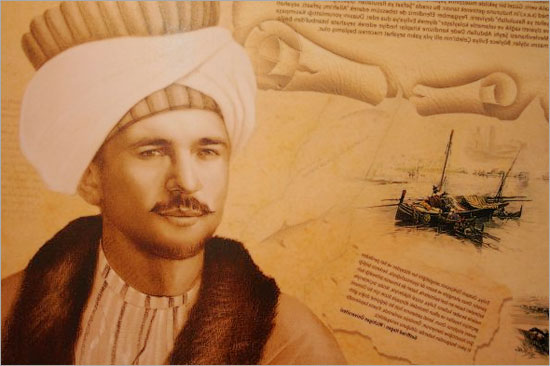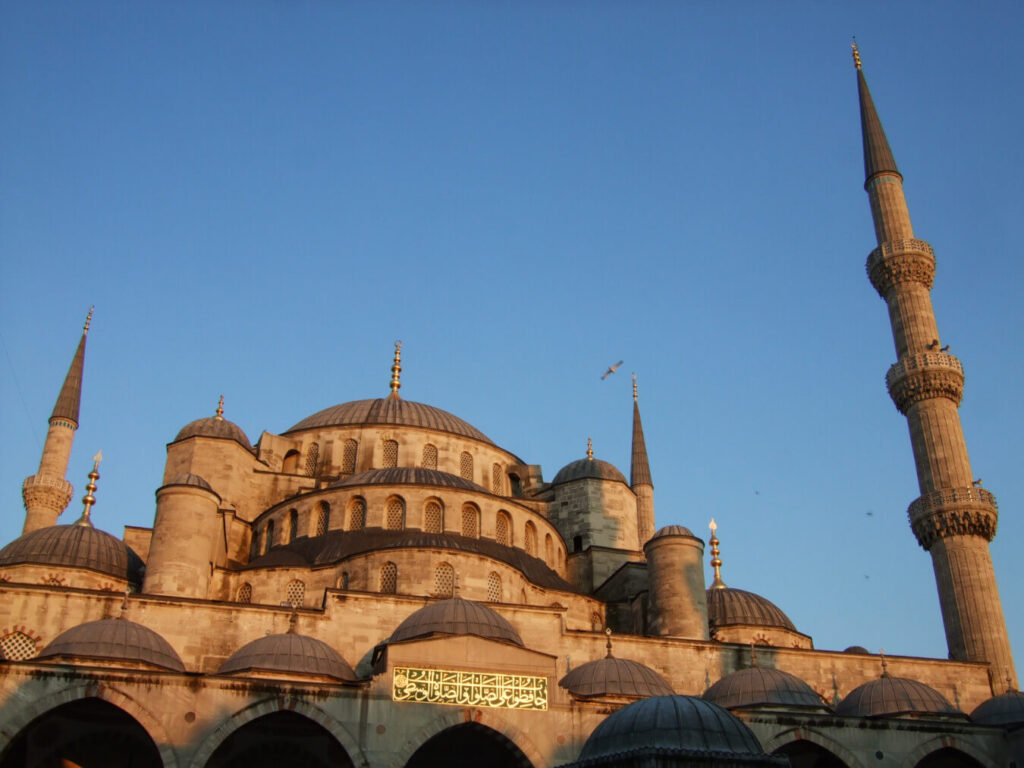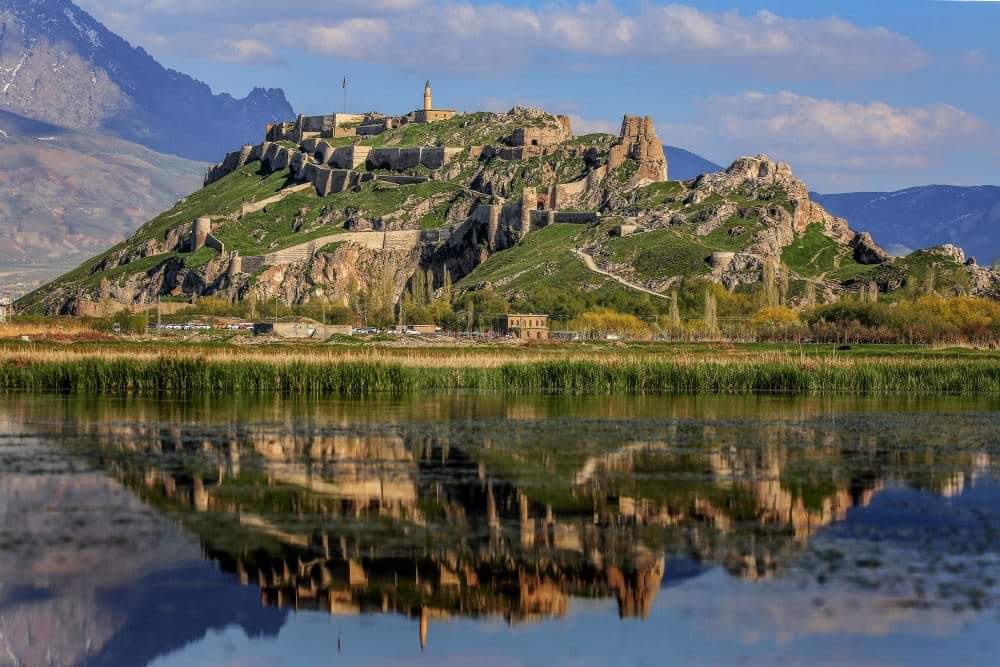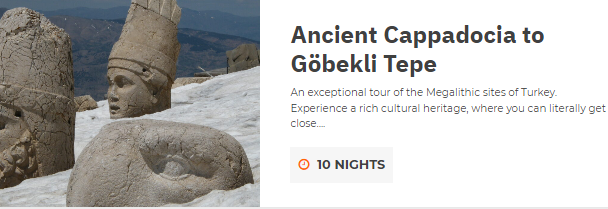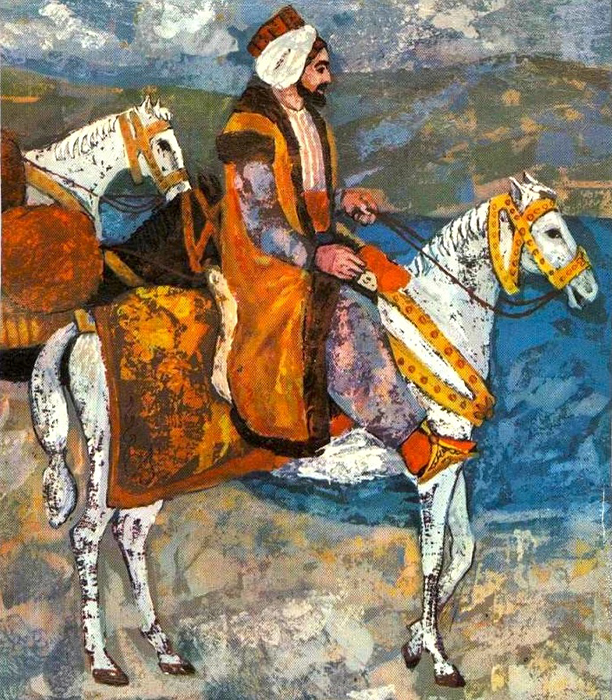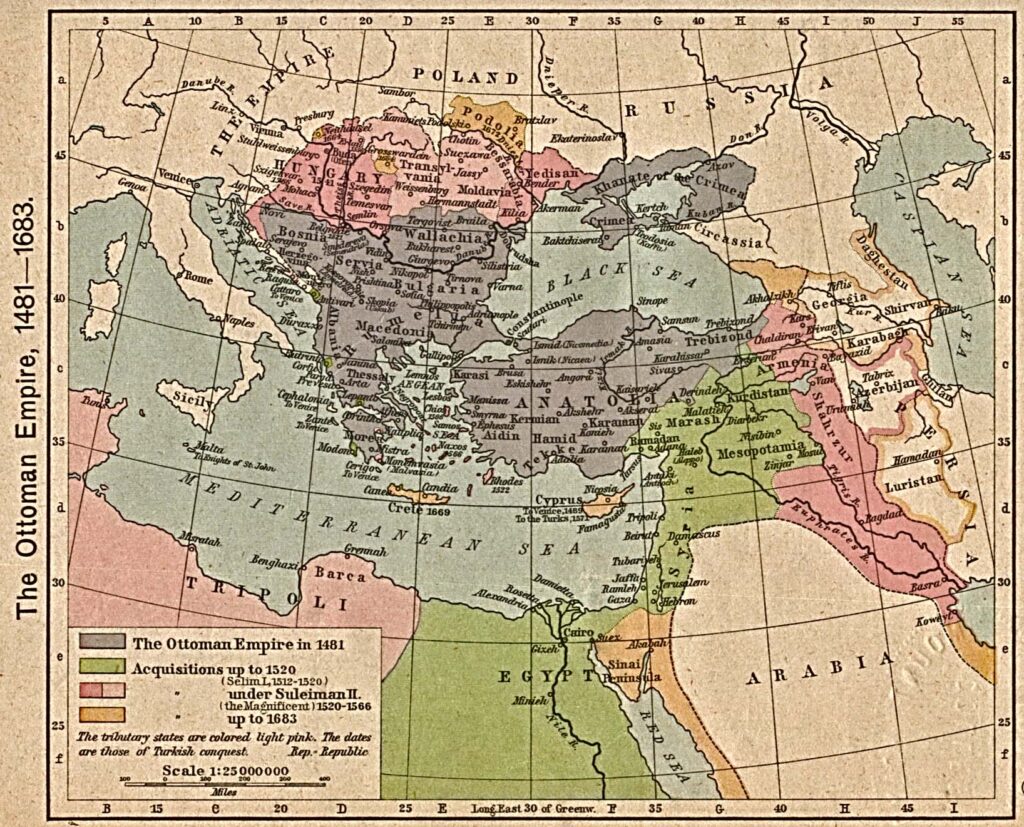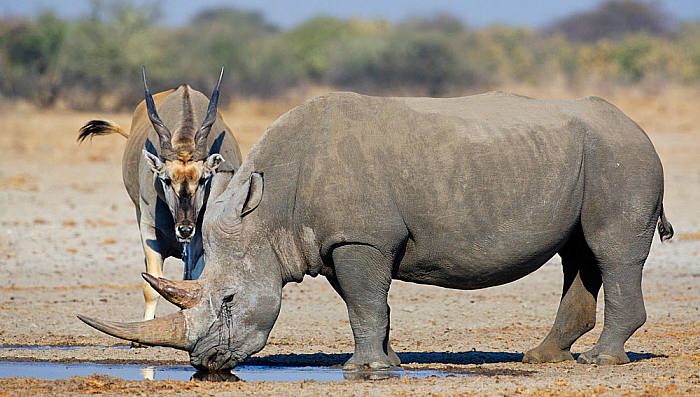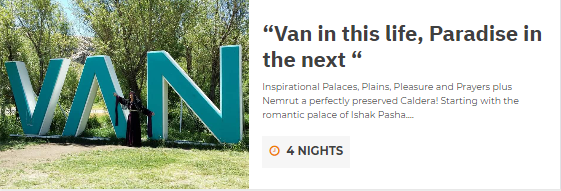Evliya Çelebi, the great Ottoman traveller and diarist, was born in Istanbul in 1611 into a prominent artisan family with connections to the Imperial household; his father was Goldsmith to the Sultan. This position gave him, as he grew up, superb connections for his later life as a traveller and the means to establish himself as a well-educated and pious man of the world. There are a number of stories that describe his drive to travel but in one instance it is said that one day praying in the Mosque “Şefaat ya Allah!” a Muslim prayer asking God to grant forgiveness, what he actually said was “Seyahat ya Allah!” a slip of the tongue which meant God grant me travel or so the story goes. As the Turks say “bir varmış, bir yokmuş” which means “maybe it was, maybe it wasn’t”. In any event this later story does encapsulate the spirit of the man.
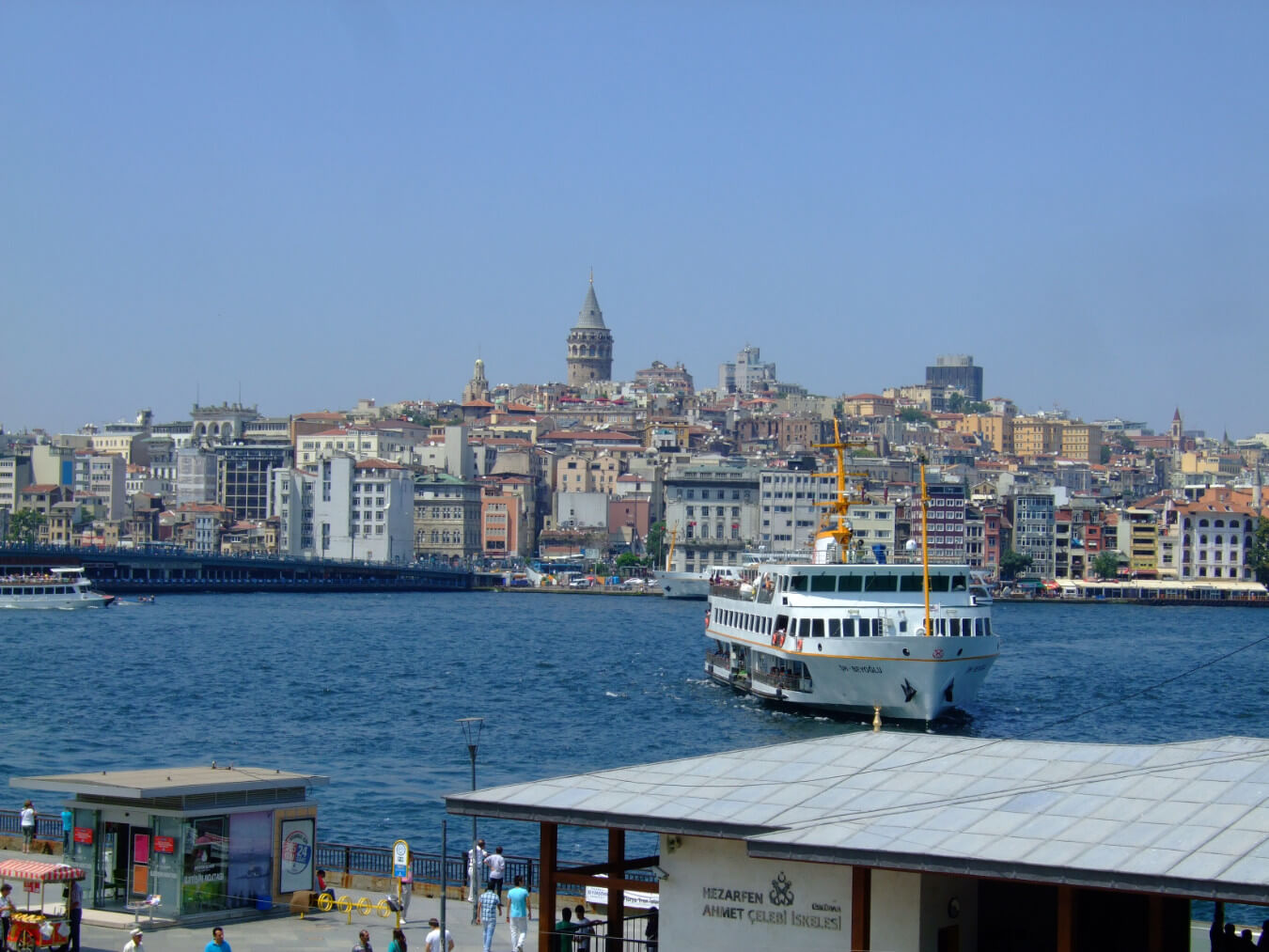
Given his vocation as a traveller and given the dangers of travel at the time not just to life and limb but also to health, where your life could be ended by anything from bandits to the simple scratch of a dirty thorn, Evliya Çelebi lived a remarkable and long life finally dying in Cairo in 1684 after a 10 year retirement and 50 years of travel. His accounts can be read with great profit and considerable entertainment. According to Çelebi himself, his desire to travel, although clearly innate, was prompted by a dream in which revered Holy figures from Islam, including the Prophet himself, told him to travel and explore the world, visiting holy places and distant lands. The use of a dream is a common Ottoman literary mechanism for establishing the basis for a narrative. In a manner of speaking, it acts like a prologue establishing intent and motive.
Article continued below…
The narrative of Evliya’s dream is detailed and lengthy but can be summed up by the instructions given to him at the end of the dream by his dream guide.
“Go, be victorious with thy bow and arrow; be in God’s keeping, and receive all the prophets and holy men whose hands though has now kissed. Thou shalt travel through the whole world, and be a marvel among men. Of the countries through which thou shalt pass, of their castles, strong-holds, wonderful antiquities, products, eatables and drinkables, arts and manufacturers, the extent of their provinces, and the length of the days there, draw up a description, which shall be a monument worthy of thee. Use my arms, and never depart, my son, from the ways of God. Be free from fraud and malice, thankful for bread and salt (hospitality), a faithful lord friend to the good, but no friend to the bad.”
Struck by his vivid dream, Evliya consulted not just an interpreter of dreams but also a prominent Cleric, both of whom told him that clearly his dream had told him that his desire for travel was God given and he should follow this course. So maybe it’s not so different from the popular Turkish story after all.
A native of Istanbul, his travels took him from the Sudan to Mecca, from Istanbul to Persia, from the Crimea to the Balkans, across the Austro-Hungarian Empire and beyond to Belgium and as far as the Baltic.
His lifetime of travel and the extent of the places he visited makes him one of Europe’s great travel writers and diarists, who wrote in a lively style that combined travel log with diary, geography book with diplomatic reports and mixed into all of this Çelebi managed to include tall tales reminiscent of the writings of Jonathon Swift in Gulliver’s Travels. As a Diarist he shares the same chatty and keen observational style we see from his contemporary the English and London Diarist Samual Pepys. It is a shame they never met!
As a young boy his keen intelligence and facility with languages, coupled with a melodious singing and speaking voice, meant that by the age of twelve he was apprenticed to Sultan Murad IV’s court Imam. It was reported that the Sultan himself had heard Evliya reciting the Koran and personally picked him for the role he would follow from this point until adulthood, in fact, Evliya was able to recite the Koran from memory in its entirety, a feat of devotion which took about eight hours.
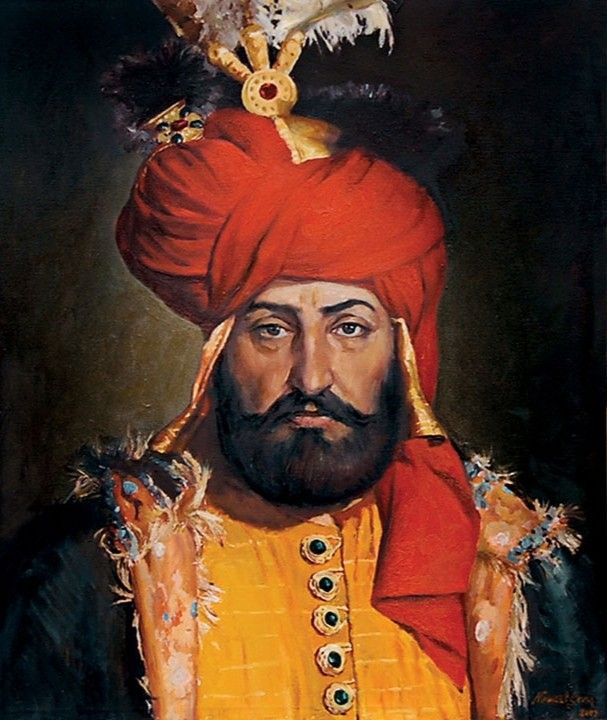
Sultan Murad IV – Evliya Çelebi’s discoverer
This role as a Koranic reciter and singer of prayers effectively combines the world of literary expression with the world of oral tradition, and it is this training that gave him skills both as a diarist and a raconteur, which he was to call on for the rest of his life. Also, his position in the court of the Sultan, based at the Topkapı Palace, gave him a backstage view of the beating heart of one of the great Empires of the pre industrial world.
Article continued below…
The fact that his father had for a time, been Standard Bearer to the Sultan and his uncle had been the Sultan’s Sword Bearer, and that members of his family had performed these roles as far back as the reign of Suleyman the Magnificent, the greatest Ottoman Sultan, a century earlier, combined with his personal qualities and skills, gave him a pedigree that enabled his first trips beyond his native city as a part of diplomatic missions abroad.
For a short time as a young man, he was a member of the Sipahi, who were frontier cavalry known for their reckless bravery and in this role he campaigned in the Crimea and in the Balkans before starting his career as a Diplomat provincial administrator and traveller. His diplomatic missions early in his career, included a mission to Tabriz designated to negotiate trade and border settlements with the Governor of that province as a representative of the Shah of Persia. This trip is described in great detail and provides fascinating insights into the nature of diplomatic etiquette and the ceremonies of gift exchange during this period.
His name also appears in court records in Vienna from 1664 from his time as a participant in a diplomatic mission to the Court of the Hapsburg Empire. While the Ottoman Ambassador, Kara Mustafa, was waiting outside the city for his official permission to enter, Evliya as a member of the entourage, was still free to enter and explore the city. Evliya was able to obtain , from the Emperor Leopold I, letters of recommendation and a passport, enabling him to travel across Hapsburg domains and into neighbouring territories, and it is from this mission that he extended his European trip as far as the North Sea where he visited Rotterdam in the Netherlands and reputedly encountered some Native Americans who had been brought there by European traders. He then continued his trip north into Denmark and then into Germany and across Poland before continuing back to the Ottoman Empire via Crimea.
There is also a copy of a letter in the Orthodox Patriarchate in Constantinople which acts as a character witness demonstrating that he was a man of respected reputation across the ethnic and religious communities of the Ottoman Empire.
His earlier accounts of his wider travels includes a journey across the Caucuses that included Baku, Yerevan and Tbilisi and from there up to the Sea of Azov and then into Crimea which at that time was an independent Khanate that owed allegiance to the Ottoman Sultan. His account of the Crimea includes detailed description of prominent slave markets which supplied slaves to the Balkans and to Anatolia as well as the Imperial Court itself. It was on this trip that he narrowly escaped death after his ship was wrecked in a storm and he survived by clinging to a broken spar before he was finally washed up on the Bulgarian coast. He vowed never to travel on a ship in the Black Sea again, a promise to himself that he kept. His account of this event carries an intensity of both emotion and detail that is a testament to not just the veracity of the story but also to the deep personal impact of the event.
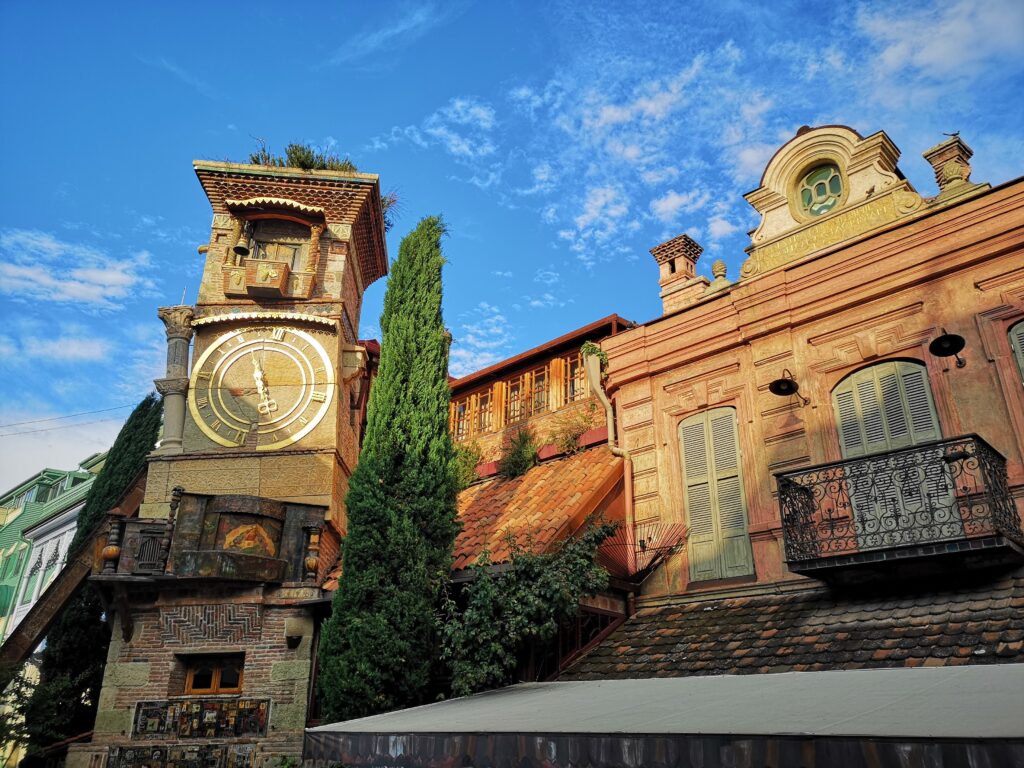
Later critics of Evliya Çelebi’s work expressed doubts to the value and accuracy of his books based on what are clearly “tall tales” which he uses consistently throughout his work. However, not only is it easy to separate the fanciful from the factual, this criticism misses the point and misunderstands the nature of the transmission of information during this time, especially in a world that did not have the printing press. One has to remember that when travelling in his own right as an independent traveller and not part of a diplomatic mission, he would have been dependent upon the hospitality and charity of notable people in the places he visited. This was a world where a worldly wise traveller who had covered great distances would have been called on to recount his experiences and he would have shared not just factual information but also tall tales he had picked up on his travels and embellished versions of his experiences for the entertainment of his hosts, many of whom would never had travelled at all.
For instance, we have the story from his trip to the Sudan, where he was accompanied for a time by two dervishes, one of whom was riding a rhinoceros and the other riding an Oryx, until that is, the rhino died and the Oryx ran away! And then there is a story from eastern Anatolia, part of a trip to Bitlis, in which Mollar Mehmed, a Kurdish conjurer and illusionist of prodigious skills, appeared to “fly” high in the air, extravagantly urinating on the onlookers below! Evliya Çelebi recorded that “even one who suffered incontinence of urine could not pee that much”. And how about the story from central Anatolia, of the girl who gave birth to an elephant, more of which in a later journal.
My personal favourite, however, is of the witch he encountered in a Province of Bulgaria, who late at night rubbed ash on the skin of children who were sleeping on the floor of their hut, upon which, they turned into chickens and followed her as she left. The group ran down the street into the village where they came across a local man who pulled out his penis and urinated on them, upon which they all reverted back to their normal form. The man then grabbed the witch and dragged her to the church where the priest cursed her. Evliya’s servant boy who had followed them down the street and “witnessed” the event, swore when later interrogated that everything he had said about what he had seen was the absolute truth…..
Clearly fantastical stories like this are easy to separate from the factual accounts which describe the world of high society down to the mysterious world of common folk from warriors to snake charmers and travelling merchants and itinerant mystics.
Article continued below…
For example, in May 1656, Evliya returned to Melek Pasha’s entourage in Van, where he was acting as the Sultan’s representative, after eight months travel in Kurdistan, Mesopotamia and Azerbaijan, where he writes
“I was not absent from our lord Melek Pasha’s company day and night for a single moment. He inquired about my travels over eight months, the great fortresses and ancient cities that I had seen, the wonders and the marvels, and the condition of every region, whether thriving or ruined, and how justice was administered. I played the part of royal companion, and we had wonderful conversations.”
In another passage after returning from the eastern Black Sea region overland in October 1659, he stopped at Edirne, then temporarily capital of the Ottoman Empire, and he wrote
“I resided in the houses of all the statesmen and nobles, and attended the salons during that winter season with all my patrons and lords. I regaled them with descriptions of the towns and villages I had passed through and the fortresses I had toured, and we conversed heartily, day and night.”
Article continued below…
His work is broken up into ten books covering various chapters of his travelling life and each book ends with a handy dictionary of terms for the languages he encountered, which include useful things like basic food items, directions and even insults to throw at a man’s wife!
Çelebi eventually settled down in retirement in Cairo for the last ten years of his life because he said “he liked the heat” and having experienced extremes of weather in his many travels across the Caucuses and Europe, felt that this comfort was something he had earned. His books were written up and compiled and held in the library of a friend and benefactor in Cairo and it is one of those extraordinary accidents of life that this record was found and preserved for us to enjoy.
Today, when you travel to Turkey for the first time, your arrival presents you with a lot of unfamiliar names. The arrival of an aircraft at any airport sets off a ballet of service vehicles from catering vehicles with hydraulic platforms, mobile stairways and baggage handling equipment. One name you will see consistently emblazoned on these service vehicles is “Çelebi”.
While the name might not have immediately jumped out at you in the clutter of airport technology and the profusion of advertising boards and displays selling unfamiliar products in an unfamiliar language, it is actually a name of some significance, as you will now appreciate.
Join us in later journals as we recount his travels across Anatolia and where we visit the places he describes.
Happy adventures with Sally and Nick and of course Evliya Çelebi

